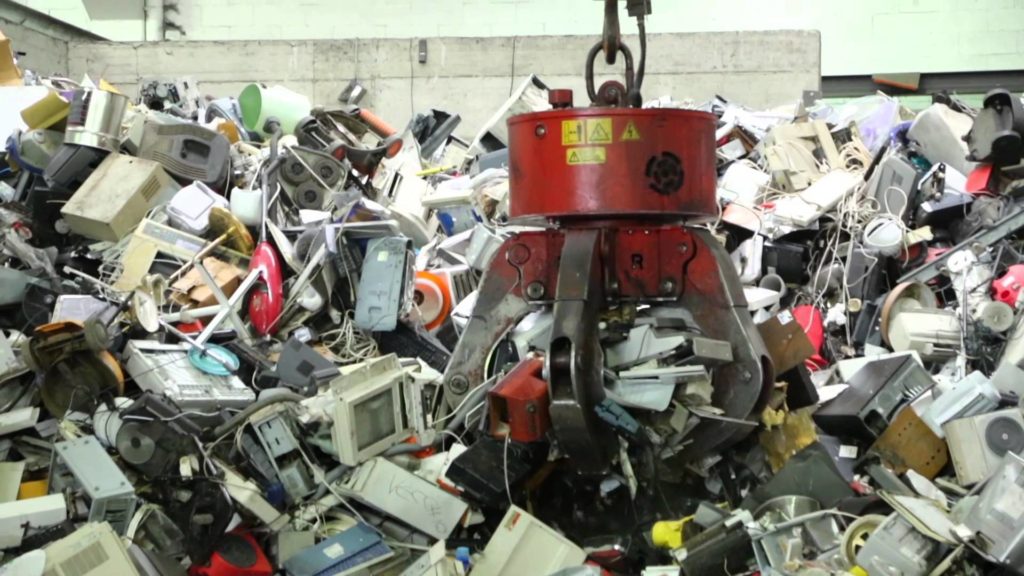E-waste Producer Responsibility Organisation of Nigeria (EPRON) says electronic waste still find its way into the country, posing a threat to the environment and health of citizens.

The Executive Secretary, EPRON, Ibukun Faluyi, said this in a statement on Thursday, July 28, 2022, in Lagos.
Faluyi said that Nigeria remained a destination for illegal trans-boundary shipment of end of life electrical and electronic equipment, despite the government’s efforts.
She listed the efforts as the enactment of the Basel Convention, regional and local regulations.
According to her, Person in Port (PIP) report reveals that 19 per cent of Used Electrical and Electronic Equipment (UEEE) imported into Nigeria in 2015 and 2016 are found to be non-functional and constituted e-waste.
“A common type of illegal e-waste shipment experienced in the Country is Cathode Ray Tube (CRT) screens containing devices such as televisions and monitors.
“CRT screens are heavily leaded glass screens containing about 35 per cent of lead oxide.
“The presence of lead; a toxic heavy metal, with adverse effect on human health when inhaled and when ingested makes CRT screens highly polluting and difficult to recycle,” she said.
Faluyi noted that the recycling challenge was worsened by technological replacement from CRT to flat screens in most devices, making CRT screens an obsolete technology.
“CRT glasses in Nigeria accumulates in repairers’ shops and eventually in dump sites,” she said.
She said that the government in 2011 issued a regulation and legislation to ensure Environmentally Sound Management (ESM) of e-waste to confront the challenge of increasing stockpiles of CRT tubes.
Faluyi noted that despite the enacted legal instrument, CRT devices still found their way into the country.
She added that the PIP report revealed that 260 tonnes of CRT were imported into Nigeria annually.
Faluyi said that the National Environmental Standards and Enforcement Agency in 2019 adopted the polluter pays principle, imposing fines on importers of e-waste and making them responsible for the ESM in the border to recycling initiative.
Faluyi noted that defaulters of the initiative were handed over to EPRON and made to bear the cost of transporting the e-waste from the port to the recycler.
She added that they made to bear the financial responsibility of recycling through one of EPRON’s registered recyclers.
“Since 2019, six importers of CRT have been apprehended for importing about 2.362 tonnes of CRT tubes.
“It is a crime against the government of Nigeria and humanity to transfer hazardous materials that will serve no value other than to pollute the environment, especially the soil and underground water when these products are brought into the country,” she said.
The executive secretary noted that CRT devices were usually shipped into the country by unsuspecting importers who were ignorant of existing local regulations.
Faluyi advised importers to limit themselves to the importation of tested and functional UEEE.
By Oluwafunke Ishola
